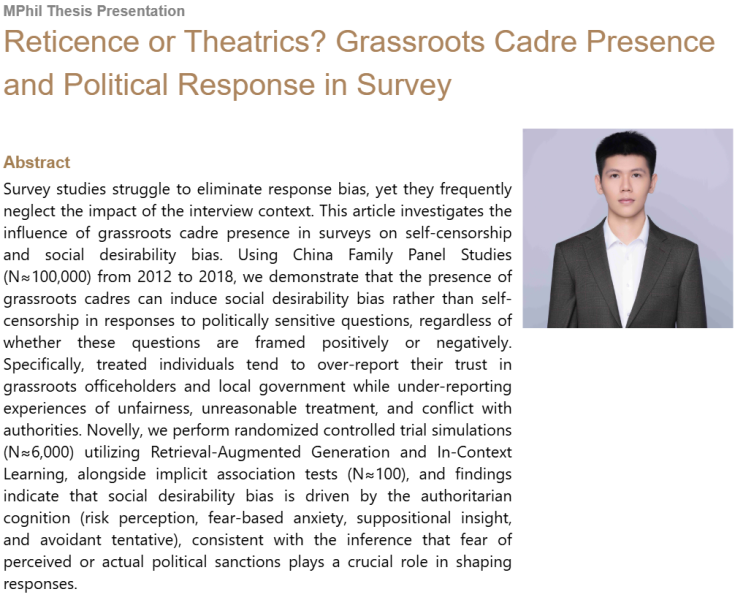Abstract
Survey studies struggle to eliminate response bias, yet they frequently neglect the impact of the interview context. This article investigates the influence of grassroots cadre presence in surveys on self-censorship and social desirability bias. Using China Family Panel Studies (N≈100,000) from 2012 to 2018, we demonstrate that the presence of grassroots cadres can induce social desirability bias rather than self-censorship in responses to politically sensitive questions, regardless of whether these questions are framed positively or negatively. Specifically, treated individuals tend to over-report their trust in grassroots officeholders and local government while under-reporting experiences of unfairness, unreasonable treatment, and conflict with authorities. Novelly, we perform randomized controlled trial simulations (N≈6,000) utilizing Retrieval-Augmented Generation and In-Context Learning, alongside implicit association tests (N≈100), and findings indicate that social desirability bias is driven by the authoritarian cognition (risk perception, fear-based anxiety, suppositional insight, and avoidant tentative), consistent with the inference that fear of perceived or actual political sanctions plays a crucial role in shaping responses.

